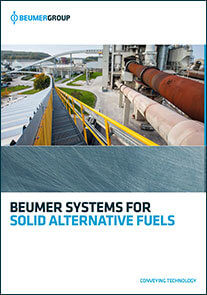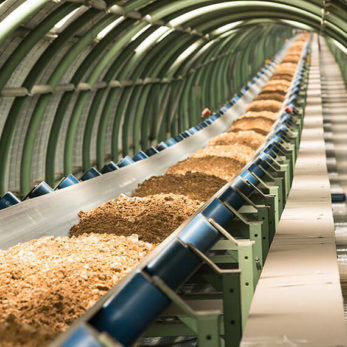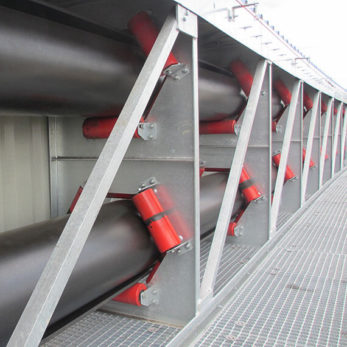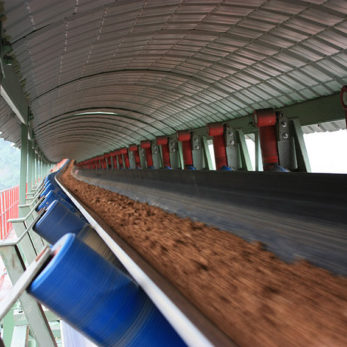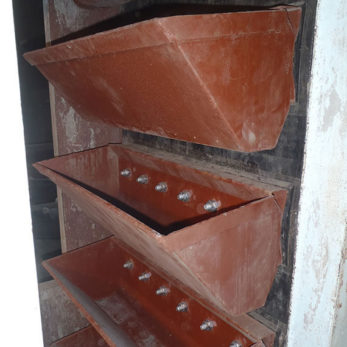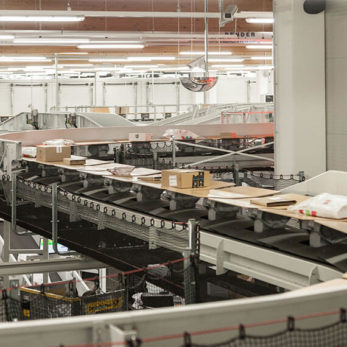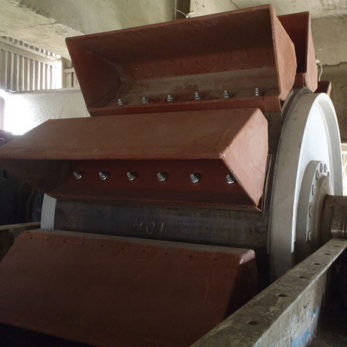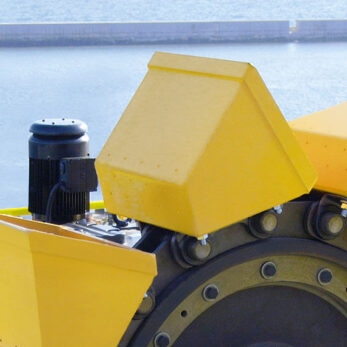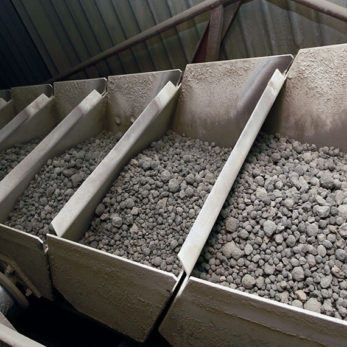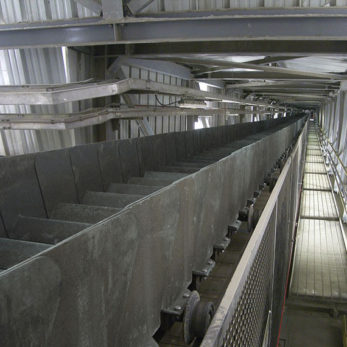

变废为宝 替代型燃料是水泥厂更为经济的选择
我们的系统能够对这些可替代材料进行高效地储存、分离、称重、计量和运输,并且不会对环境造成危害。 还可以实现改变燃料类型。
因此,这些设备可确保水泥厂窑炉的运行和燃料更经济。 同时,可替代燃料产生的灰分作为矿物成分被添加到水泥熟料中,从而减少了所需添加剂的用量。
特点
经济的能量回收
低成本废物利用
无恶劣环境影响
可以更换燃料类型
燃烧过程精确给料
采用替代型燃料
将废弃物预处理成高品位替代燃料并加以应用,对降低生产成本和二氧化碳排放量越来越有吸引力–尤其是在水泥和石灰行业等能源密集型领域。 此外,所有有机污染物都将在温度约为 2 000 °C 的窑炉中被销毁,并被剩余的细磨石灰石吸收。 不同类型替代燃料的使用取决于特定地区的可用性,特别是经济方面。
我们的 AFR 系统旨在满足日常运行压力下对功能和性能的特殊要求。 除了全面供应可靠的替代燃料处理系统外,我们还专注于物流规划、定制输送和仓储系统,包括起重机大厅、钢结构,当然还有机械部分的交钥匙交付。 由于所有设计组和系统组件均采用模块化系统,因此每个项目的工程设计都是单独进行的。
灵活和可靠的重要性
替代燃料市场仍在发展之中。 从工厂运营商的利益出发,他们更倾向于选择可持续且易于定制的解决方案,以使用最高效、最经济的燃料。
热替代率(TSR)对系统的整体设计和所用组件也有重大影响。 要求和实现的 TSR 越高,对可靠设备的需求就越大,因为由于技术和经济方面的原因,替代主燃料非常困难。

采用废旧轮胎作为替代型燃料的系统技术
不能回收再利用的废旧轮胎最适合进行协同处理:天然橡胶和纺织胎体可以用作燃料,同时可以从钢骨架中获取熟料所需的铁。伯曼集团拥有多年的专业知识和先进的技术,能够提供将整只轮胎和轮胎碎片作为轮胎衍生燃料(TDF)的给料技术。
轮胎碎片作为轮胎衍生燃料(TDF)
伯曼系统技术灵活,设计用于TDF的输送和给料,保证窑炉连续、平稳运行。在进行适当的协同处理时,考虑到轮胎碎片保留时间较长,可以使用与RDF和生物燃料相同的路径持续进行TDF给料。根据具体的流程要求个性化规划所有模块、系统设备以及各整体项目。
协同处理轮胎
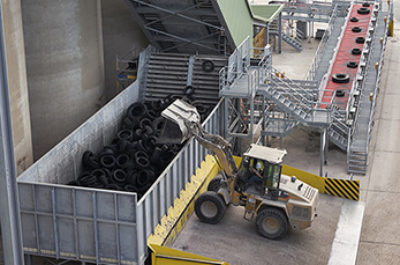
要生产出稳定的水泥熟料质量,就必须采用连续运行的窑炉工艺,这就需要连续不断地向窑炉输送废旧轮胎和轮胎碎片。由于需要在无峰值负荷的情况下大量焚烧,因此建议采用自动处理系统。电气控制配备了 PLC。所有储存和供应功能均由光电管和传感器控制,对灰尘、污垢和温度不敏感。驱动装置配有检查开关,以便在发生干扰时手动处理单个区段。
从交付到协同处理
废轮胎卸下后,主要由装载机或龙门起重机处理,并用多边形抓手进行储存和卸料。 库存区域的大小必须与窑炉的消耗量相适应,并在不连续供应和连续消耗之间起到补偿作用。
必须获得官方许可才能建立和运营仓库以及建造轮胎处理系统,并应遵守当地相应的消防和水管理规定。
轮胎通过储存和分离线、控制站和称重系统后,陡峭的倾斜输送机将轮胎从地面输送到预热器的规定入口高度。 倾斜输送机的能力和尺寸是根据每个特定项目专门设计的。
整个轮胎可通过旋转阀或三瓣阀进气。 上台阶和中央台阶的开启和关闭是为了防止热处理过程中的热量损失和不必要的空气进入。 下部台阶可作为故障关闭装置。 金属部件由高耐热涂层保护。
Your Partner of Choice
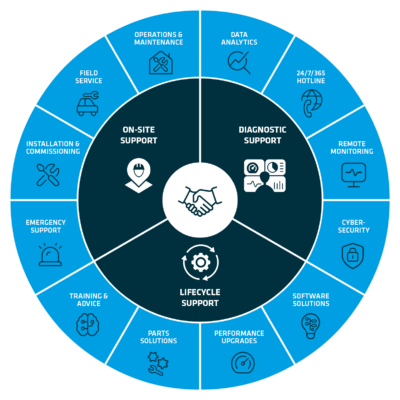
Proactive Customer Support for your industry
Our support goes beyond the standard — it’s a partnership built to last. Backed by a worldwide network of regional service centers, we are with you throughout the entire lifecycle of your systems and assets, understanding your unique needs to ensure maximum reliability and efficiency.
We are working 24/7 to be your Partner of Choice.

Do you have questions about 替代型燃料输送机系统 (AFR)?
Do you have questions about 替代型燃料输送机系统 (AFR)?
Your Contact Person
Alexander Tigges
Director Global Sales Minerals & Mining
